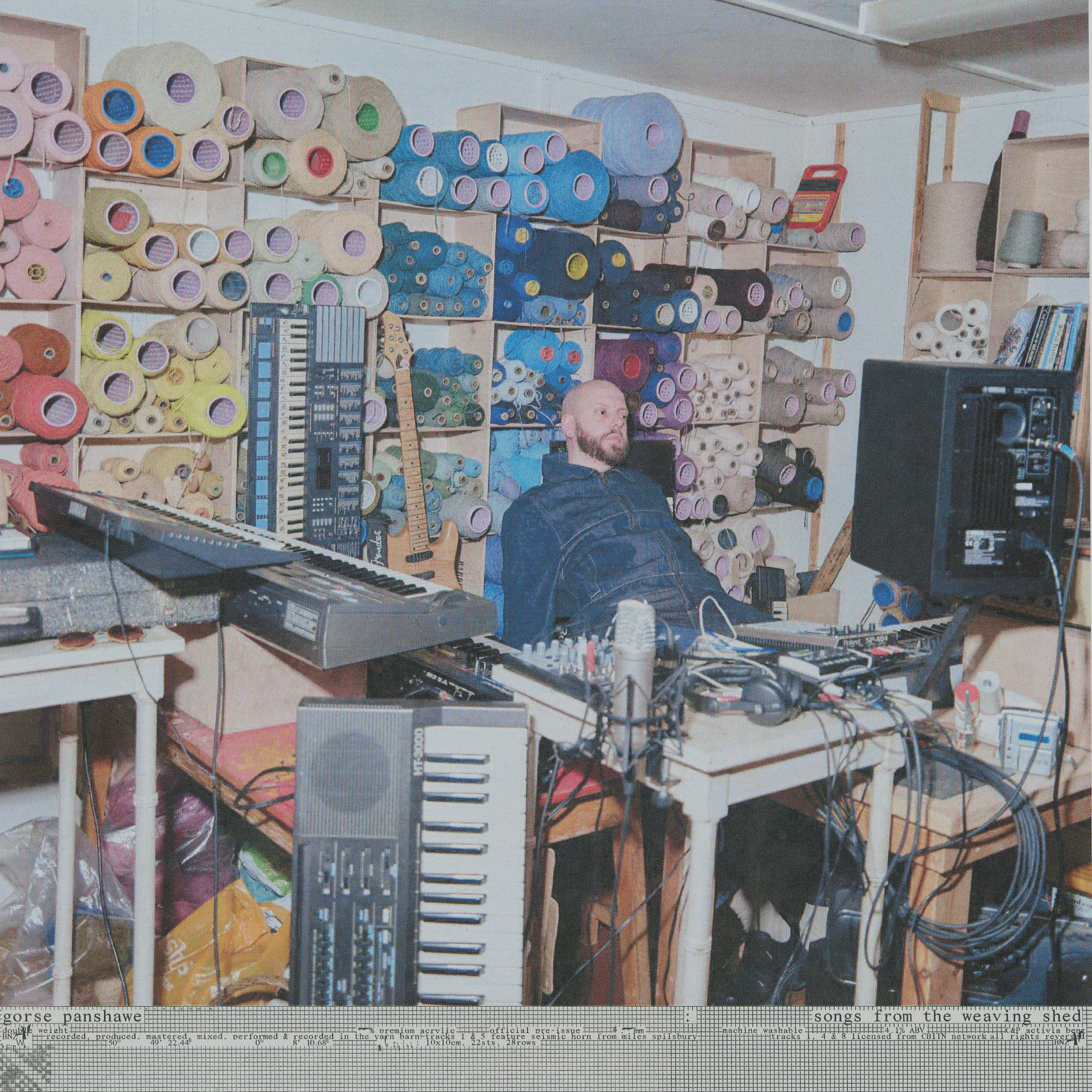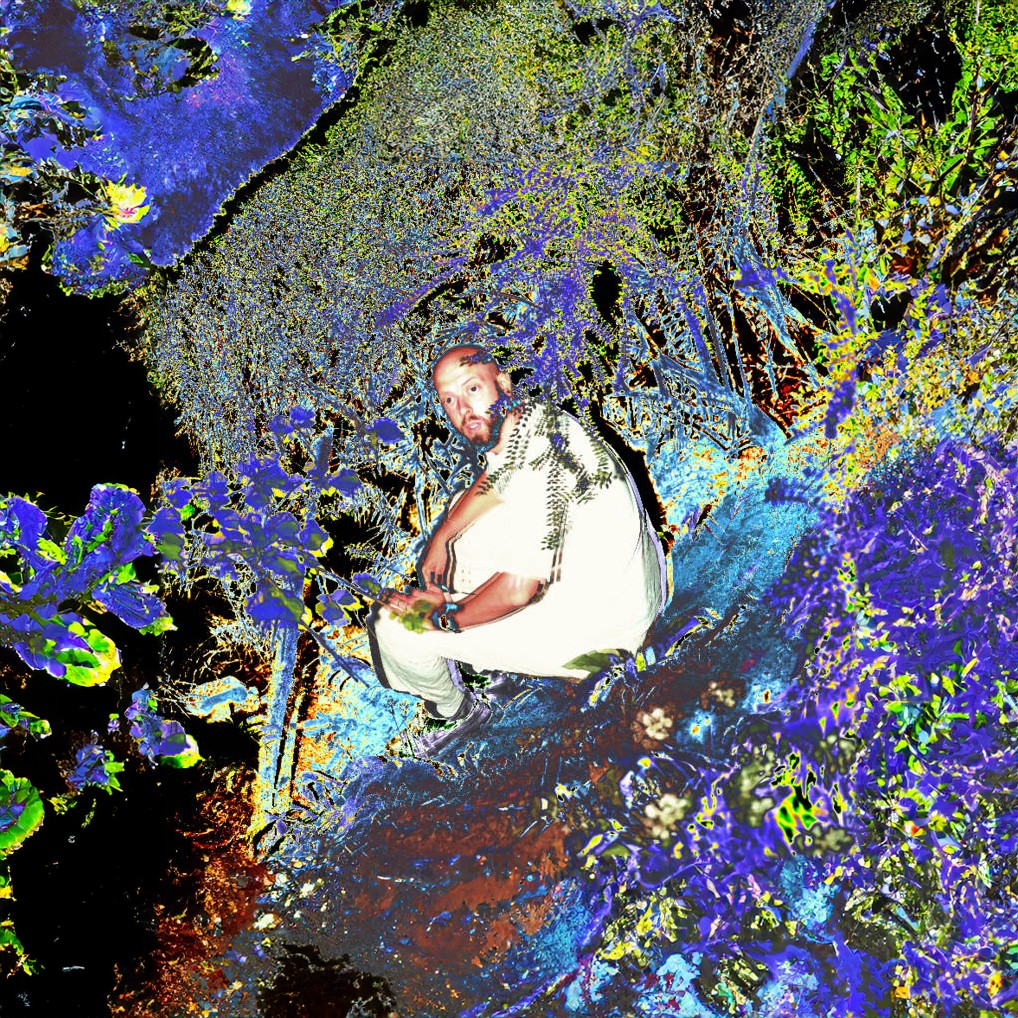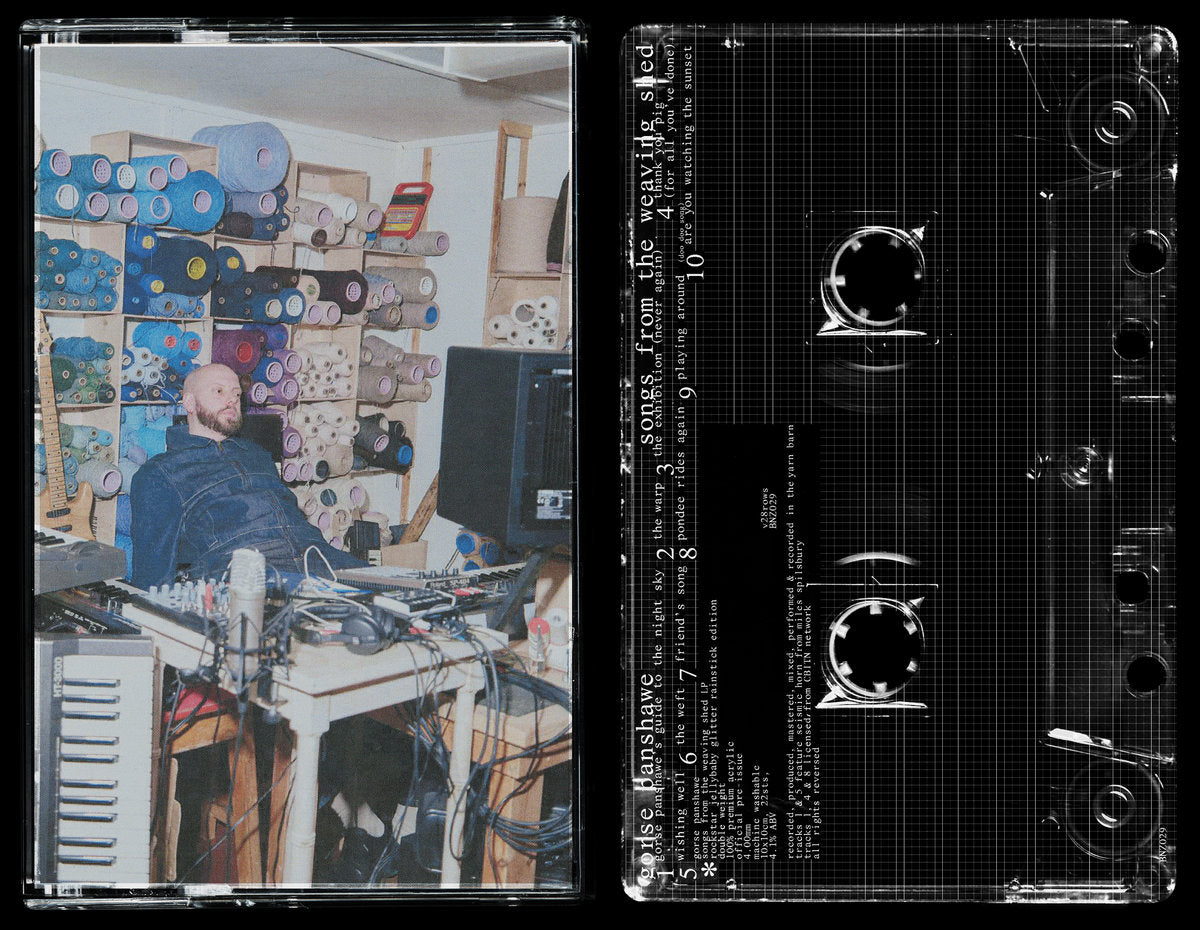
'songs from the weaving shed' by gorse panshawe | Album Review
Written by: chris.
“We Have To Leave This Town Because I Have Done Something Unforgivable”
This was the first time I came across three names at once: Peter Talisman, which it turns out is a collaborative project between Samuel Organ and gorse panshawe. This song, this album Lord Of The Harvest, and this collaboration Peter Talisman soon became mainstays in my playlist rotation.
As I moved chronologically backward in my discovery rabbit hole, I found a Samuel Organ album A Safe Place In Cyberspace released earlier that same year (2021) with two collaborations featuring gorse on it. This pressed me to dig deeper.
Once I looked further into gorse, I discovered this was a rebranding for one of my classic favorites, Slugabed, who already had a deep discography rich with unique artistry and sonic mastery. Every stage of his career has been impressive, but since Inherit the Earth (2017), gorse has refined his sound into a balance of avant-garde style and technical mastery, creating a fresh, authentic sensory experience.
In September, gorse panshawe blessed us with a new album, songs from the weaving shed, his first since 2021.
I’m constantly on the lookout for the unique — unexpected drum rhythms, unusual sound design or distinct vocal tones. That’s why I’ve long been a fan of gorse, even before his rebranding. He consistently meets those criteria, and songs from the weaving shed is no exception.
One word that comes to mind for this album is subtle. It brims with intricacies that surface gently. Even when horns or drum breaks appear in tracks like “friend’s song,” they’re understated rather than overwhelming. Overall, songs from the weaving shed seamlessly blends genres, from ambient jazz and hip-hop influences to whimsical faerie flutes and beyond.
With a bit of luck, I sent gorse some questions, and to my delight, he shared his insights on life, the universe and songs from the weaving shed.

Synapse: You had a very busy year in 2021 with multiple major releases. It’s been relatively quiet since then and now here you are with another album, is it a product of life post-quarantine? How has life over the last few years shaped the making and direction of the weaving shed? Has the process of making this album differed from your past releases?
gorse: For me, the process does not change drastically, neither does it stay the same. Every album I make seems a fluid and natural process, and a reflection of the time in which I make it. I moved into “the weaving shed” studio around mid 2022 and I love it there. And it did help me to get into album mode, although some of the tracks had began life prior to this.
Synapse: There is a playful edginess to your music, but it’s always mixed to absolute perfection, and loaded with an obviously deep understanding of sound and music. How do you balance those elements of experimentation with the expert precision that makes everything feel like it belongs right there where you placed it?
gorse: I spend a lot of time sitting with the music. I enter, leave and re-enter the headspace of each track many times. I never have a plan or a concise vision for any single track, and it seems to just develop as a result of these differing times when I dive into them. I have very little clue what I am doing most of the time I am doing it, but the music sort of fizzes out of me in various directions.
Synapse: The titles of your released singles — “the Exhibition,” “the Weft,” and “the Warp,” even the album title songs from the weaving shed — suggest a conceptual thread. Could you delve into the significance of these titles and how they tie into the broader narrative of the album?
gorse: “the exhibition” is a song about trying to help somebody present their art, coming from a place of kindness and also confidence, but totally fucking it up. And feeling ashamed and stupid. “the warp” and “the weft” are referring to the two different directions on a loom, when weaving. And the weaving shed is where I made the music! For once, I was not grandiose or too conceptual about the album. It is simply songs I made in the weaving shed.
Synapse: Your discography is marked by a distinct and evolving sonic identity. What is your primary drive to innovate and explore new musical territories? Especially in a time and place that seems to reward homogeneity? Is it hard to maintain that unique authenticity?

gorse: No, I do not find it hard to create new things, I find it very hard not to. I would love to carve a clear sound that I can package and tell people that’s what I do. It is not possible. I simply sit down and muck around and then the music starts writing itself. I have no say in the matter. Sometimes I wish I could just make chill beats, or dance music or something. But I am happy in my world.
Synapse: Collaboration seems to play a significant role in your work, notably with artists like Samuel Organ. How do these collaborations influence your creative process, and what do you gain from working with other musicians?
gorse: Sam Organ is a good friend, and I love him. The same goes for many collaborations I am part of. It is phenomenal to create stuff with friends, and/or creative people you respect. I spent many years working on my own vehemently, not wanting anybody else to taint my buzz. But in the last few years the buzz has been repeatedly tainted with wonderful input from wonderful people, and music has become a more magical part of my life than it was before. (It already was very magical, but now it is moreso).
Synapse: How do you navigate the balance between artistic evolution and maintaining continuity with your past work? Do you feel a responsibility to your earlier sound, or is each new project a chance to redefine yourself?
gorse: I used to feel a subconscious sense of responsibility, whether it be to fans of the music or my own sense of cohesive creative output, but I made a conscious effort to buck those ideas and never feel that way again. I am not cut out for that shit. I must create a racket and not worry about what it means, relative to anything else. I just want to make music and enjoy it like I’m a kid again, so that’s what I do nowadays.
Synapse: Your work often explores complex emotions and narratives. How do you approach translating these intricate feelings into your music, and do you find that certain themes or concepts consistently reappear in your work?
gorse: I try not to be too explicit, or at least, I try not to expect anybody will feel what I’m hoping they will feel from the music I am putting out into the world. As long as I feel deeply about the stuff I do, I think that will translate in its own way to a listener. And yes, I think similar themes recur in my work. I have very few interests.
Synapse: Looking back at your earlier work, how do you feel your music has evolved? What lessons have you learned over the years that have shaped your current artistic direction?
gorse: It was quite a slow process, but looking back on stuff I made when I was a lot younger, I realize that I didn’t have a clear vision, but I either thought I did or I wanted to. Also I would be very easily influenced by other people’s opinions on what I “should” be doing, or what was cool at the time. But in time I have learned that truly the only way I can approach this discipline is to enjoy the process and let the bigger picture come to me, and not try to force it or make it seem more cerebral than it is. Many people are cut out for different things, but I am realizing more and more that I am simply a big stinker who likes to muck around with his keyboards.
Synapse: Your music often seems to exist in a space between genres, defying easy classification. How do you perceive genre in your work, and do you intentionally strive to transcend traditional musical boundaries?
gorse: Oh I wish I could just do a genre. Just one little nice genre, and then I could tell people that’s what I do, and then people who like that genre could search online and find my music. Oh, to be a genre-doer. But no, I do not intentionally strive to transcend genres. I just do what I do, and sometimes I wish it was better.
Synapse: What do you hope listeners take away from this new album? Are there any specific messages or emotions you want to resonate with your audience?
gorse: I can’t very easily put it into words, which I guess is why I put it into music. I hope people enjoy to listen to it, and feel something during the process. Also if you have a little dance in the living room, that’s a bonus.

Synapse: Is there anything I didn’t ask you’d like to say?
gorse: Thanks so much for the interview. I’m so happy to hear you enjoyed the album! Have a wonderful day.
Artist: gorse panshawe
Album: songs from the weaving shed
Available Through: Activia Benz
Rating: R (for ridiculous)
Favorite Song: “friend’s song”
-c.
